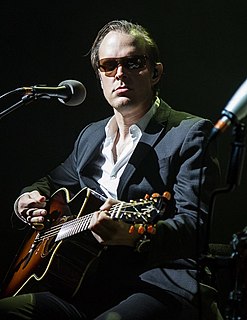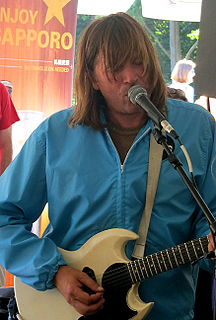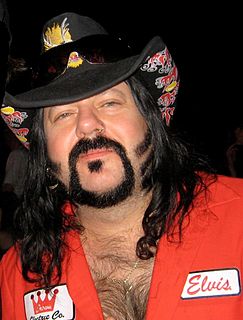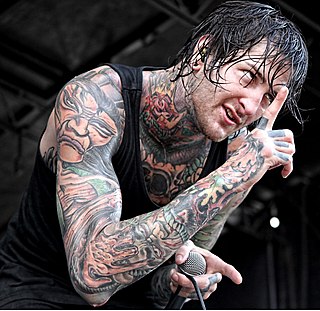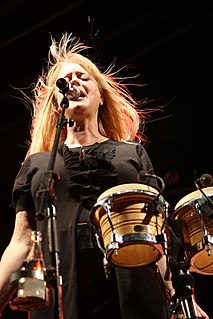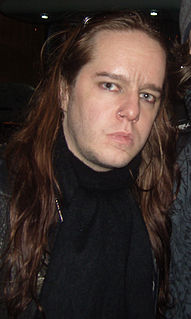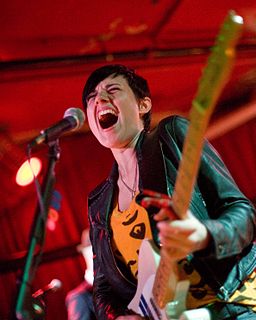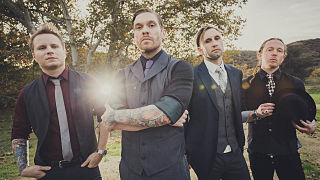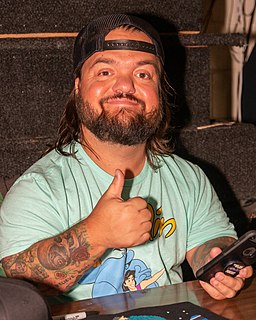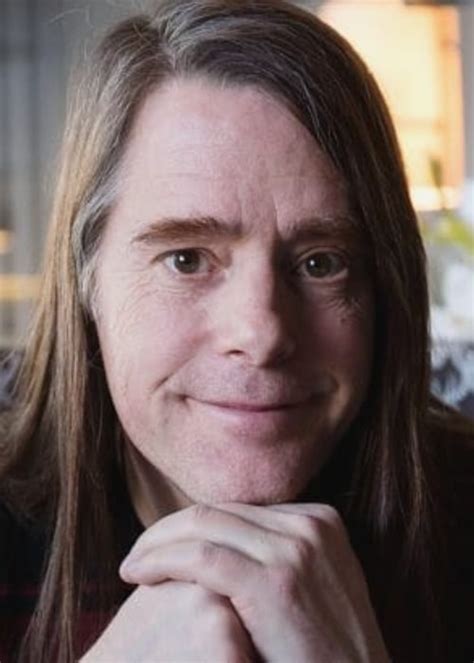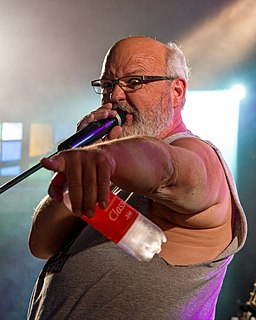A Quote by Joe Bonamassa
If you have a good riff with a vocal as well, then it becomes a devastating song. That's why people love riff-rock: it's the ultimate air guitar music.
Related Quotes
I came to work one day, and Ricky was playing music on his guitar, just snickering. He played me the riff that turned out to be 'Rock Lobster,' and it was hilarious. He was just trying to be funny. His guitar style made it moodier, and it really is a driving song, but it does have that funny humor to it.
I usually start with a guitar riff or some little pattern of chords, and then I kind of go from there. Usually my lyrics are the last thing to go onto a song. For years and years I only ever did instrumental, so I'm still trying to get confidant with my lyrics and find the right balance. I'll generally get inspired from the music. I'll have a guitar line, and then I'll have a melody line, and I hook the lyrics up to fit that rhythm. So, my lyrics to tend be very rhythmic as well. They work with the music rather than the music works around them.
I don't play a lot of instruments so when it comes to the song writing process I don't have a lot to do with that. A lot of times it's just acoustic guitar and a small riff that produces a song. Ultimately you want to write a song that people are going to enjoy and that you love to play, most importantly you have to write it for yourself first.
